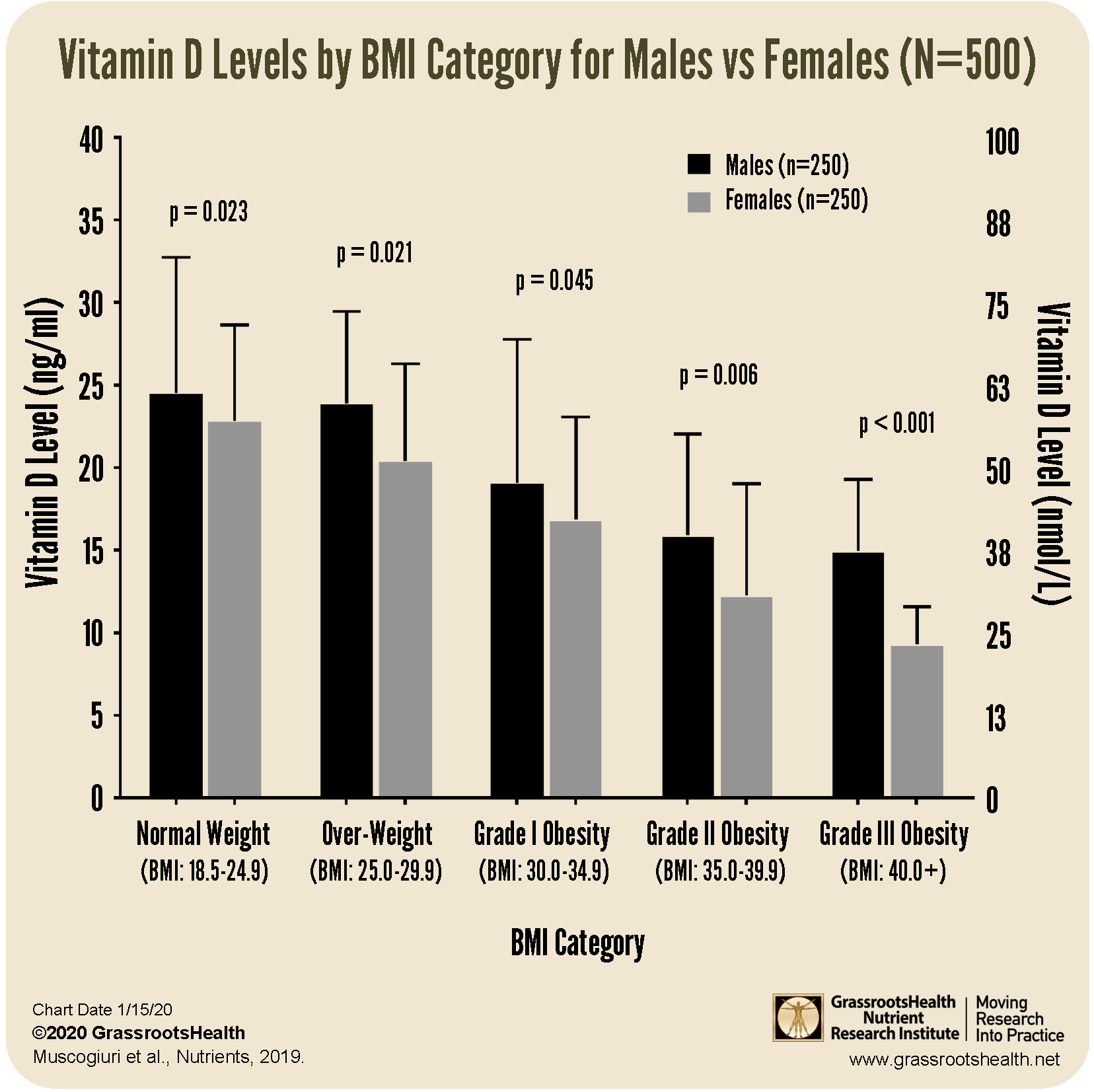Published on January 17, 2020
 Vitamin D plays many important roles in human health well beyond the regulation of calcium and phosphorus for bone health. It has been shown to have effects on cancer, cardiovascular disease, autoimmune health, and pregnancy health. It makes sense that the demand for vitamin D may differ between men and women, and that vitamin D status may be affected by gender.
Vitamin D plays many important roles in human health well beyond the regulation of calcium and phosphorus for bone health. It has been shown to have effects on cancer, cardiovascular disease, autoimmune health, and pregnancy health. It makes sense that the demand for vitamin D may differ between men and women, and that vitamin D status may be affected by gender.
What does the research show?
A recent study by Muscogiuri et al. included 500 adult Caucasians living in Naples, Italy. Participants were evenly split by gender and 5 body mass index (BMI) categories (50 female and 50 male in each category). All participants had similar sun exposure habits, and none of the participants were taking vitamin D supplements. The researchers compared vitamin D levels between genders and BMI category. They found that the vitamin D levels were significantly higher in males than in females across all BMI groups, with a trend towards a higher percent of females with vitamin D deficiency, defined as <20 ng/ml (<50 nmol/L). As expected, they also found a trend towards lower vitamin D levels with higher BMI.
The chart below illustrates these findings, grouped according to both BMI and gender (p < 0.05).
In a following post, we will take a look at what the GrassrootsHealth participant data shows when comparing male and female vitamin D levels.
Could you be vitamin D deficient?
Make sure you know your vitamin D level, and take steps to keep it within a target of 40-60 ng/ml or 100-150 nmol/L! Through GrassrootsHealth Nutrient Research Institute, you can also test your essential elements magnesium, copper, zinc and selenium, toxins such as lead, mercury and cadmium, as well as your omega-3 levels, inflammation levels and thyroid stimulating hormone (TSH) level. Find out your levels today! Log on to the test selection page (click the link below) to get your tests and see for yourself if your levels can be improved.
Make sure you track your results before and after, about every 6 months!
How can I track my nutrient intake and levels over time?
To help you track your supplement use and nutrient levels, GrassrootsHealth has created an online tracking system called myData-myAnswers. For each specific supplement, you can track what days you take it, how much, and many other details. This will help you know your true supplemental intake and what patterns of use work for you to reach and maintain optimum nutrient levels. Check it out today!







